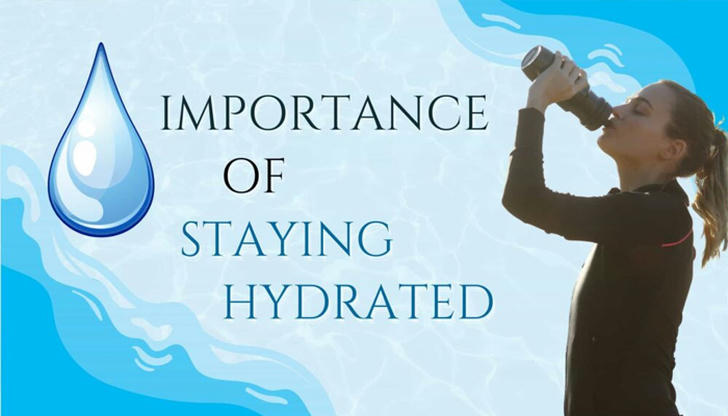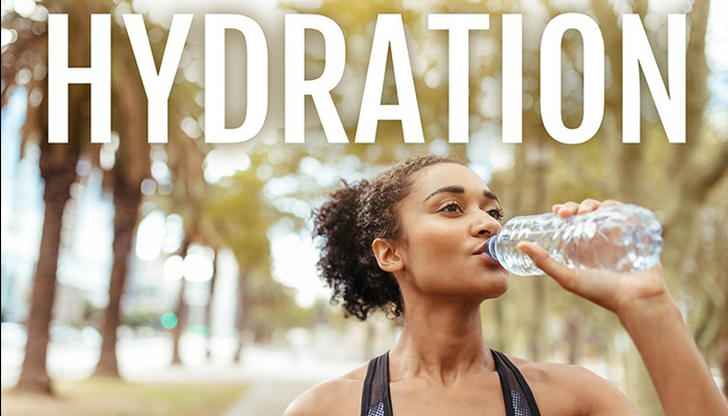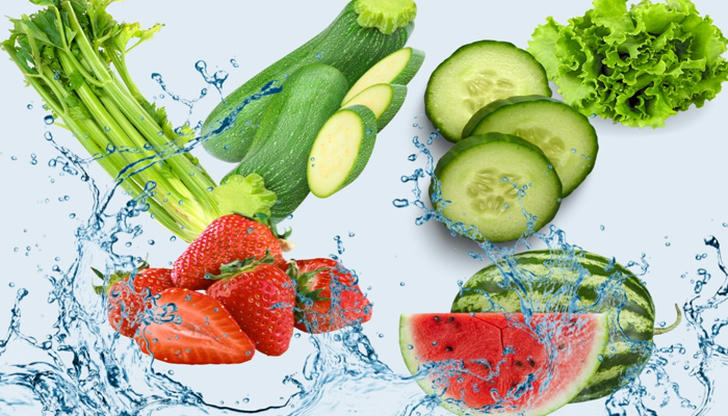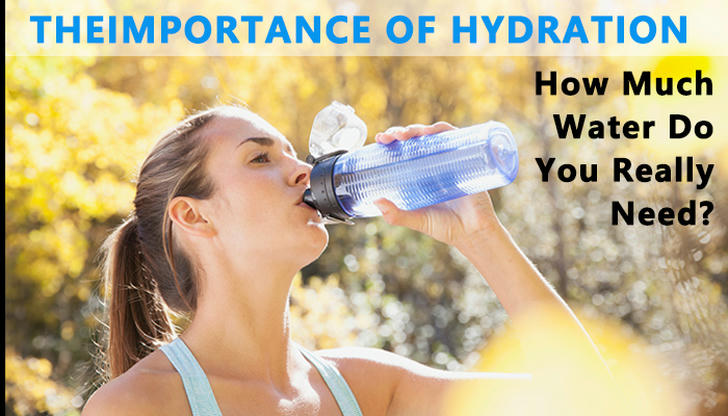The Power of Hydration: How Much Water Do You Really Need (and Easy Ways to Drink More)
Water is essential to life. It makes up about 60% of the human body and plays a vital role in nearly every bodily function—circulation, digestion, temperature regulation, and even brain function.

Despite its importance, many people don’t drink enough water daily. This can lead to chronic dehydration, which often goes unnoticed but can cause fatigue, headaches, poor concentration, and even digestive issues.
So how much water do you really need? And how can you easily incorporate more hydration into your daily routine? Let’s break it down.
1. How Much Water Do You Really Need?
The Standard Recommendation
You’ve probably heard the advice to drink “8 cups of water a day,” but is that really the best guideline? According to the National Academies of Sciences, Engineering, and Medicine, the recommended daily water intake is:
Men: About 3.7 liters (125 ounces) per day
Women: About 2.7 liters (91 ounces) per day
This includes all fluids from water, food, and other beverages—not just plain drinking water.

Factors That Affect Your Water Needs
Your personal water requirement isn’t one-size-fits-all. Several factors can influence how much water you should drink each day:
Physical Activity: If you exercise regularly or sweat a lot, you need extra fluids to stay hydrated.
Climate: Hot or dry environments increase water loss through sweating, requiring higher intake.
Body Size and Metabolism: Larger individuals or those with a high metabolic rate need more water.
Diet: High-salt, high-protein, or high-fiber diets require more water for proper digestion and kidney function.
Health Conditions: Fever, diarrhea, or kidney-related issues can increase your hydration needs.
Signs You’re Not Drinking Enough Water
Dehydration isn’t always obvious. By the time you feel thirsty, your body is already behind on fluids. Here are some common signs of mild dehydration:
Dark yellow urine or infrequent urination
Dry skin or lips
Headaches and dizziness
Fatigue or brain fog
Muscle cramps
If you experience these symptoms often, it may be time to step up your hydration game.
2. Easy Ways to Drink More Water Every Day
Create a Hydration Routine
One of the simplest ways to increase water intake is to make it a habit:
Start your day with a glass of water before coffee or breakfast.
Drink a glass before each meal to aid digestion and prevent overeating.
Set hourly reminders on your phone or use a water-tracking app.
Make Water More Enjoyable
If plain water feels boring, try these ideas to enhance the taste:
Infuse with fruits or herbs: Add lemon, cucumber, mint, or berries for a refreshing twist.
Opt for sparkling water: Unsweetened carbonated water can be a fun alternative.
Try herbal teas: Warm or iced, they count towards your daily hydration.
Use Smart Hydration Tools
Buy a water bottle with time markers to track your progress.
Use a smart water bottle that reminds you when to drink.
Keep water within reach—at your desk, in your car, and beside your bed.
Eat Hydrating Foods

Not all hydration has to come from drinks! Many foods have high water content, including:
| Hydrating Food | Water Content |
|---|---|
| Cucumber | 96% |
| Watermelon | 92% |
| Oranges | 86% |
| Celery | 95% |
| Tomatoes | 94% |
Adding these foods to your diet can help keep you hydrated without extra effort.
3. Common Myths About Hydration
"You Only Need to Drink Water When You’re Thirsty"
Thirst is a late signal of dehydration. If you wait until you feel thirsty, your body is already losing fluids. A better approach is to drink small amounts of water consistently throughout the day.
"Drinking Too Much Water is Dangerous"
While excessive water intake can lead to water intoxication (hyponatremia), it’s very rare. Most people struggle to drink enough water rather than too much. Unless you’re consuming extreme amounts in a short period, staying well-hydrated is safe.
"Coffee and Tea Dehydrate You"
While caffeine is a mild diuretic, moderate coffee and tea consumption still contributes to hydration. The fluid content outweighs any dehydrating effects, making them a good alternative if you enjoy them.
4. The Health Benefits of Staying Hydrated

Boosts Energy and Brain Function
Even mild dehydration can impair mood, memory, and focus. Drinking enough water helps keep your brain sharp and your energy levels stable.
Supports Digestion and Weight Management
Drinking water before meals can prevent overeating by making you feel fuller.
It helps prevent constipation by keeping the digestive system running smoothly.
Improves Skin Health
Water helps maintain skin elasticity and hydration, reducing dryness and promoting a natural glow.
Regulates Body Temperature and Detoxification
Water helps cool your body down through sweating.
It supports kidney function, flushing out waste and toxins from your system.
Conclusion: Make Hydration a Habit
Drinking enough water doesn’t have to be difficult. By following a few simple strategies—like setting reminders, choosing flavorful alternatives, and eating water-rich foods—you can easily improve your hydration levels.
Better hydration means more energy, better focus, healthier skin, and improved digestion. Start making small changes today, and your body will thank you!
